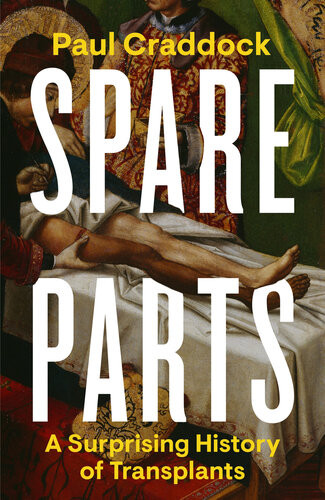

Most ebook files are in PDF format, so you can easily read them using various software such as Foxit Reader or directly on the Google Chrome browser.
Some ebook files are released by publishers in other formats such as .awz, .mobi, .epub, .fb2, etc. You may need to install specific software to read these formats on mobile/PC, such as Calibre.
Please read the tutorial at this link: https://ebookbell.com/faq
We offer FREE conversion to the popular formats you request; however, this may take some time. Therefore, right after payment, please email us, and we will try to provide the service as quickly as possible.
For some exceptional file formats or broken links (if any), please refrain from opening any disputes. Instead, email us first, and we will try to assist within a maximum of 6 hours.
EbookBell Team

4.4
62 reviewsA DAILY MAIL BOOK OF THE WEEK
'Spare Parts is a fascinating read filled with adventure, delight and surprise' RAHUL JANDIAL, surgeon author of 'Life on a Knife's Edge'
'This is a joyful romp through a fascinating slice of medical history' WENDY MOORE, author of 'The Knife Man'
_______________________________________________________________
How did an architect help pioneer blood transfusion in the 1660s?
Why did eighteenth-century dentists buy the live teeth of poor children?
And what role did a sausage skin and an enamel bath play in making kidney transplants a reality?
We think of transplant surgery as one of the medical wonders of the modern world. But transplant surgery is as ancient as the pyramids, with a history more surprising than we might expect. Paul Craddock takes us on a journey - from sixteenth-century skin grafting to contemporary stem cell transplants - uncovering stories of operations performed by unexpected people in unexpected places. Bringing together philosophy, science and cultural history, Spare Parts explores how transplant surgery constantly tested the boundaries between human, animal and machine, and continues to do so today.
Witty, entertaining and at times delightfully macabre, Spare Parts shows us that the history - and future - of transplant surgery is tied up with questions about not only who we are, but also what we are, and what we might become. . .